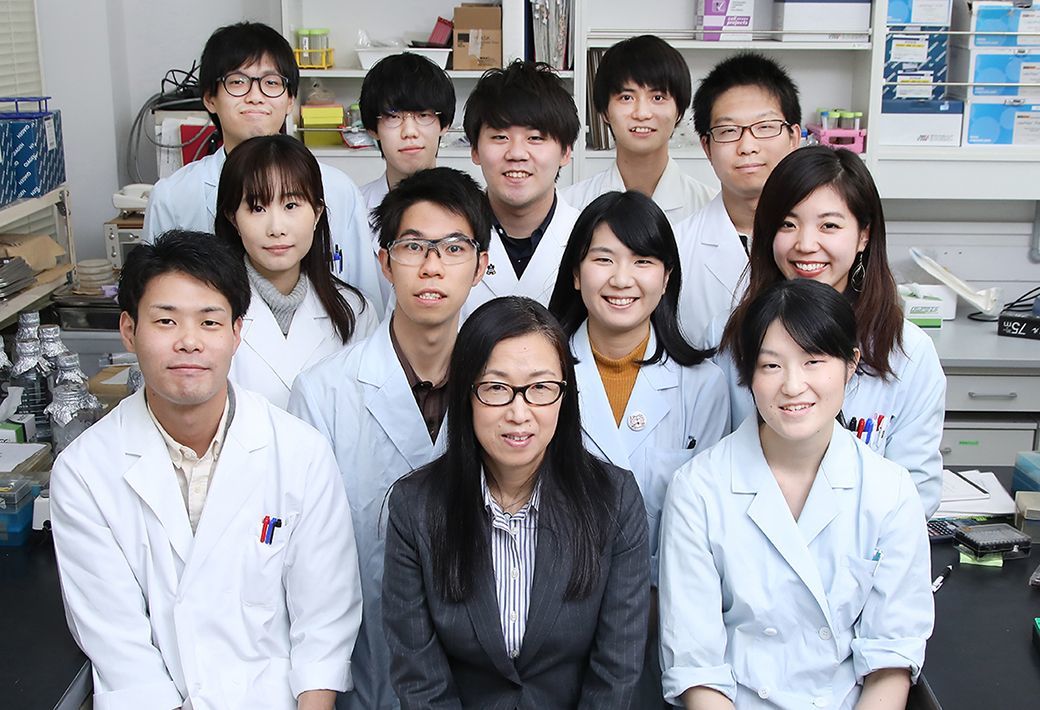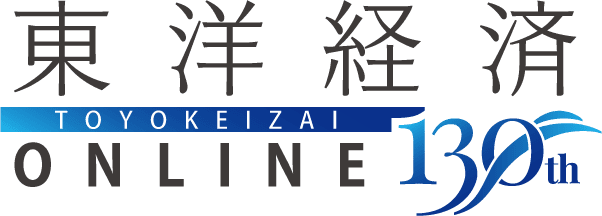Focusing on science & tech research Global Learning at Sophia University
Regarding patent applications, she says that staff in charge of patents at the Center offer comprehensive support such as checking points regarding the application in detail.
“I had been engaged in basic research for a long time, and I did not know much about cooperation among industry, government, and academia. There are many professors who are totally absorbed in their research and do not know how to appeal to potential sources of support and cooperation outside the university, and in my case it is no exaggeration to say that the Center put me where I am today.” (Professor Saito)
Cultivating the next generation of researchers
At comprehensive private universities, faculties of science and technology are often located on separate campuses, but Sophia University has nine faculties including the Faculty of Science and Technology all located at the Yotsuya Campus. The close communication and ease of access to various resources unique to a compact but comprehensive university are effective in promoting research.
“It is precisely because of our small size that the staff at the Center for Research Promotion and Support has a firm grasp of what each professor is working on and is able to share information very efficiently. Also, because of the physical and mental proximity to professors in other departments, we have frequent opportunities to obtain their opinions about our research. I am very happy that when I want to get a colleague’s ideas about something, I can just go downstairs and ask.” (Professor Saito)
Currently, Professor Saito’s immediate goal is the commercial application of her collaborative research, but at the same time, she regards cultivating the next generation of researchers as a long-term mission. One leader among this new generation belonging to Professor Saito’s office is postdoctoral fellow, Takaaki Narita. Narita studied at Dundee University in the UK for two and a half years after obtaining his Ph.D. at Sophia University, and came back to Professor Saito’s office this July.
In recent years in Japan, there has been a rapid increase in the number of people unable to find employment at a company or a position at a laboratory despite earning a doctorate, and it is developing into a social issue. Normally, postdoctoral fellows at university are hired by laboratories, but there are a limited number of laboratories with the funding to hire them or with personnel vacancies, making it difficult to secure a position.
“Sophia University has a system to recruit postdoctoral fellows under the age of 35 who earned their doctorates at Sophia. Naturally there are a limited number of positions and there is a screening process, but in my case, it was thanks to this system that I was able to return from overseas and pursue a career in Japan. Looking ahead, I would like to continue building on my experience abroad to pursue original research.” (Narita)

One member says, “I have heard there are many large laboratories at national universities, but at Sophia University the laboratories have a small number of members. It is great to have the professor and my seniors in the doctoral and master’s programs so close at hand, and when I hit a stumbling block with my research I can easily consult them.” (Keisuke Yokoyama, undergraduate fourth year)
Members of Professor Saito’s office include students from abroad. Sanjaya Alvin, an international student from Djakarta, Indonesia, says “One reason I chose Sophia University is its fantastic location in the middle of Tokyo.” Sanjaya completed the undergraduate English course a year ago through the early graduation system, and is now in the second year of the master’s program and is scheduled to participate in a major academic conference next year. Here in Japan, he is progressing steadily towards his dream of becoming a molecular biology researcher.
While taking advantage of its strengths as a compact but comprehensive university, Sophia University creates an environment where both teachers and students can immerse themselves in research. Here in Yotsuya, Tokyo, we aim to foster a new generation of researchers with global perspectives who will have a significant positive impact on our world.




